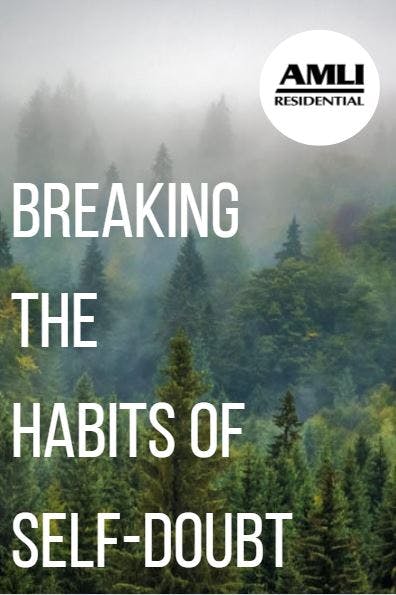We all doubt ourselves from time to time. We wonder if we are good enough or strong enough or smart enough and that is completely natural. Even the most confident people among us have insecure thoughts and struggle to overcome self-doubt.
Breaking the Habits of Self-Doubt
We are born with natural confidence. As we grow up, however, we begin to learn to doubt ourselves. We are influenced by those who raise us, the opinions of others, and by our own experiences. Over time, we can start to lose some of our natural confidence as we try to mold ourselves to meet the expectations of other people. When we try too hard to please others or to be something that we are not, we can lose sight of our identity. A healthy amount of self-doubt is our brain trying to protect us. But when self-doubt keeps us stuck and holds us back, it’s time to challenge those old, learned beliefs from the past.
What do you believe?
To begin to understand why we doubt ourselves, we first need to look at what we believe. Each person has a set of core beliefs which are essentially our roadmap for life. Our core beliefs affect how we view every situation and life experience, even if those beliefs are not true. To combat self-doubt, it’s important to examine what you believe. You may have limiting beliefs that are holding you back. Once you determine what those beliefs are you can work to change them.
Change your self-talk
The way that you talk to yourself is extremely powerful. You may not be aware of your inner voice, but it is running an internal monologue all day long. This self-talk is directly tied to your beliefs. If it is cheerful and positive, it can be beneficial and boost your self-confidence. If it is critical, however, it can negatively affect us and cause us to doubt ourselves. Pay close attention to how you talk to yourself and work to correct any unconstructive thoughts. Focus your attention on self-talk that focuses on the present moment and on seeing that moment and its opportunities as valuable.
What do you want?
Overcoming self-doubt starts with determining what you want to achieve in life and then pushing yourself to pursue those desires. Self-doubt is driven by fear. The fear of failure, of loss, of embarrassment. Sometimes, we must push past the fear of doing something and place our focus on what we want to accomplish instead. Focusing on the things that we are longing for, that bring us joy and fulfillment, will help to dispel self-doubt.
Take one step forward
Make a decision that you are going to stop doubting and start doing. Then take just one small step toward your goals. Sometimes the biggest hurdle is just getting started. Remember to start small so that you can see improvement and celebrate small achievements. Doing this will help build self-confidence. The more self-confidence you have, the less room you have for doubt.
Setbacks
Don’t let setbacks get you down. You will always have setbacks in life. In fact, some people say that if you’re not failing on a regular basis, you’re not trying hard enough. We grow through the things that challenge us the most. Setbacks are simply a tool for learning and getting better. By moving on and focusing on the positive aspects of the experience we can continue working on achieving our goals without giving up or getting bogged down with doubt.
Know yourself
Ultimately, knowing yourself and living your values is one of the best remedies for self-doubt. Being self-aware means understanding the root causes of your self-doubt. Old beliefs from the past or situations that trigger you to doubt yourself need to be examined. Once you begin to trust yourself, it is much easier to be confident and make decisions about what you want to achieve and what you need to do to get there.
A helpful exercise in getting to know yourself and build self-confidence is to begin journaling. Set aside time each morning to write about what you are grateful for, what might be bothering you, or even your hopes and dreams. Actually, you can write about anything that comes to mind. The idea is to get our thoughts and feelings down on paper. This helps us to clear our minds, makes us more creative, and gives us space to discover our likes and dislikes, our dreams and desires, and simply improves our mood.
Remember that you are not alone. Many people deal with self-doubt and find ways to overcome it. Trust and believe in yourself and you will be happier and more motivated to try new things.
Pin it!

Featured photo courtesy Pixabay/ayushrao021


 View All Posts by Barb Bauer
View All Posts by Barb Bauer